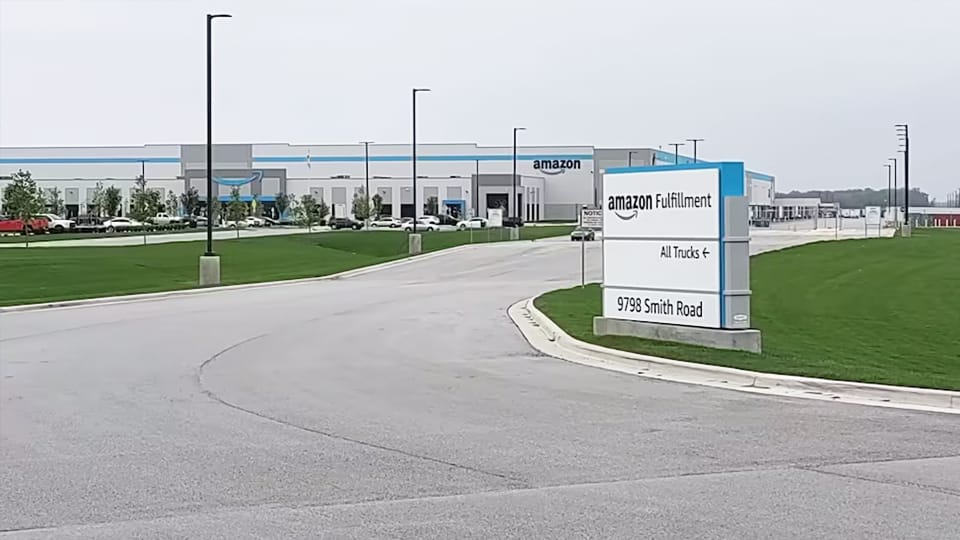Amazon worker details safety concerns at Fort Wayne facility
Subscriber Benefit
As a subscriber you can listen to articles at work, in the car, or while you work out. Subscribe Now
A former employee of the Amazon fulfillment center in Fort Wayne where a worker died earlier this year says the man’s death could have been prevented.
Joshua Tengelitsch told Alex Null from our partners at WPTA-TV that lax safety protocols contributed to the death of 20-year-old Caes Gruesbeck.
Gruesbeck was killed after his head was caught in a conveyor belt above him. Amazon spokesperson Maureen Lynch Vogel told WPTA Gruesbeck hit the conveyor belt while driving a lift in order to fix a jam on the conveyor.
“He never should have been underneath that conveyor,” said Tengelitsch, who worked with Gruesbeck when the accident happened but is no longer employed at the Amazon facility.
The Indiana Department of Labor fined Amazon $7,000 last month, ruling that there wasn’t enough room between two pieces of machinery for Gruesbeck to stand. Amazon is contesting the ruling, which was deemed a serious safety violation, the station reported.
Tengelitsch said management would sometimes ignore worker’s concerns, particularly when it came to machinery.
“We’re supposed to have the backing, so when we go to the manager to talk to them, our leads and safety and our higher-up managers, they’re supposed to back us and enforce these rules with us,” Tengelitsch said. “Instead, they just brushed us away like we were just anybody else.”
Lynch Vogel gave a statement to WPTA regarding such allegations:
“There’s nothing more important than our employees’ health and safety, which is why we’re always asking them for their input and feedback. We have multiple ways for employees to share their thoughts and feedback with us, and they’re urged to do so at any time. Further, we make it clear to employees that they’re expected to raise concerns about potential risks or hazards immediately. Employees can do this in various ways that include our Voice of the Associate boards, one-on-one conversations with managers or safety leaders, and within our hazard reporting system. If employees still do not feel heard, they’re encouraged to contact the ethics hotline anonymously.”
You can view the full investigative report from WPTA’s Alex Null and Corryn Brock by clicking here.
